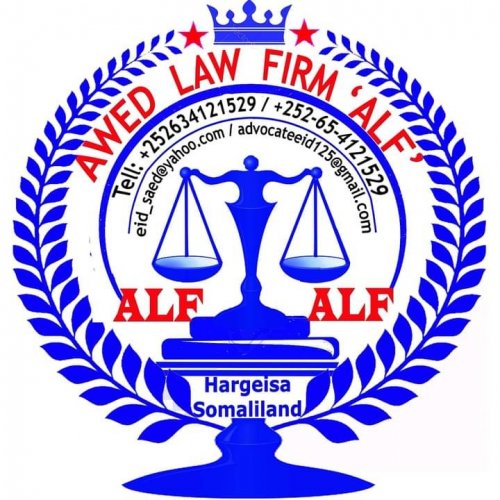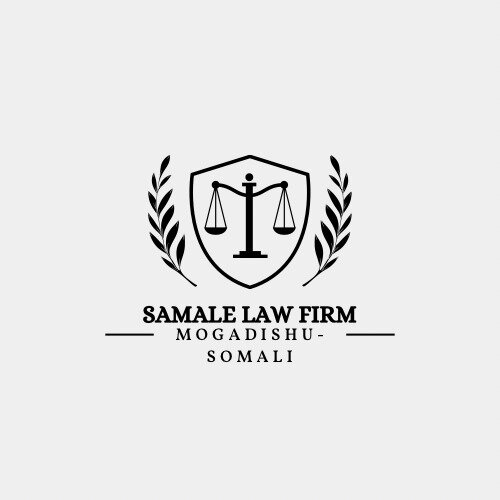Best Civil & Human Rights Lawyers in Somalia
Share your needs with us, get contacted by law firms.
Free. Takes 2 min.
Or refine your search by selecting a city:
List of the best lawyers in Somalia
About Civil & Human Rights Law in Somalia
Somalia, a country in the Horn of Africa, has a complex history that has significantly affected its civil and human rights landscape. After decades of conflict and political instability, the nation is on a path towards peace and reconstruction. However, challenges remain, particularly concerning the protection and enforcement of civil and human rights within the country. Somalia's legal framework is a mix of civil law, Islamic Sharia law, and customary law (Xeer), creating a unique legal environment. Efforts continue from both domestic and international actors to enhance the legal protections available and foster a culture of respect for human rights.
Why You May Need a Lawyer
Individuals in Somalia may require legal assistance in the realm of civil and human rights for a variety of reasons. Common situations include:
- Discrimination and Inequality: Issues related to gender, clan affiliation, or minority status.
- Arbitrary Detention or Arrest: Assistance in situations of unlawful detention without due process.
- Property Rights Conflicts: Disputes arising from land ownership or property seizures.
- Freedom of Expression: Cases involving the infringement of the right to free speech or association.
- Access to Justice: Seeking remedies against human rights abuses or violations.
A lawyer experienced in civil and human rights issues can provide crucial assistance in navigating these complex legal matters.
Local Laws Overview
Somalian legal practices are largely influenced by a combination of national legislation, Islamic law, and traditional Xeer. Here are some key aspects relevant to civil and human rights:
- The Provisional Federal Constitution (PFC): This provides a framework for governance and a commitment to upholding human rights, including equality and non-discrimination.
- Sharia Law: Islamic law plays a significant role, particularly in personal and family matters, demanding careful consideration of individuals' rights under Sharia-influenced contexts.
- Customary Law (Xeer): Traditional clan-based law remains influential, often used in rural areas for mediation and conflict resolution, highlighting the need for cultural sensitivity in legal processes.
- International Human Rights Obligations: Despite Somalia's complex legal landscape, the government has committed to international treaties and conventions aimed at improving human rights standards.
Frequently Asked Questions
1. What is the current human rights situation in Somalia?
Somalia's human rights conditions are challenging due to ongoing security issues, limited government capacity, and socio-political tensions, but gradual improvements are being made with international support.
2. How does customary law affect civil rights in Somalia?
Customary law, or Xeer, can mediate disputes and provide restitution but sometimes conflicts with formal legal protections, especially in areas like gender equality.
3. Can women fully exercise their rights in Somalia?
Though improvements continue, women often face barriers to equality due to societal norms and insufficient enforcement of protective laws, necessitating legal advocacy for their rights.
4. Are there specific laws protecting minority groups in Somalia?
The Provisional Constitution aims to protect all Somalis equally, but minority groups may still experience discrimination that advocates work to address through legal channels.
5. What are the rights related to freedom of expression?
While freedom of expression is constitutionally protected, journalists and activists sometimes face restrictions or threats, requiring legal intervention to uphold these rights.
6. How are property disputes typically resolved?
Property disputes are often resolved through a mix of formal legal proceedings and customary settlements, depending on the region and context, emphasizing the need for knowledgeable legal representation.
7. What recourse is available for victims of torture or abuse?
Victims can seek redress through the formal judicial system, but challenges like limited access to legal services and systemic issues can hinder processes, making legal support essential.
8. How does Somalia implement its international human rights obligations?
Somalia works to align local laws with international standards, yet implementation remains gradual, influenced by capacity and practical considerations on the ground.
9. Is there legal protection against unlawful arrest?
The right against unlawful detention is recognized, but practical enforcement remains problematic, requiring legal aid to ensure due process and accountability.
10. What role do NGOs play in upholding human rights in Somalia?
NGOs play a vital role in advocacy, awareness, and direct support to individuals facing civil and human rights challenges, often collaborating with legal professionals to enhance impact.
Additional Resources
Several resources and organizations can provide support and information:
- Somali Bar Association: Offers resources and connections to qualified legal professionals within Somalia.
- United Nations Assistance Mission in Somalia (UNSOM): Provides updates and resources on human rights initiatives and developments.
- Amnesty International: Offers reports and advocacy for human rights issues globally, including Somalia-specific contexts.
- Human Rights Watch: Provides research and advocacy materials related to human rights conditions in Somalia.
- Legal Action Worldwide (LAW): Provides legal aid and education across Somali regions, focusing on promoting justice and accountability.
Next Steps
If you require legal assistance in civil and human rights matters, consider the following steps:
- Research local legal professionals or organizations specializing in civil and human rights issues.
- Gather relevant documentation or evidence related to your case before consulting with a lawyer.
- Reach out to NGOs or legal aid groups for preliminary guidance or support if needed.
- Consider contacting the Somali Bar Association for referrals to qualified legal practitioners.
- Stay informed about your rights and any legislative changes that could impact your situation.
- Engage in community networks or groups that can provide support and advocacy for civil and human rights matters.
By taking these steps, you can better navigate the complexities of the legal system and work towards a resolution to your situation.
Lawzana helps you find the best lawyers and law firms in Somalia through a curated and pre-screened list of qualified legal professionals. Our platform offers rankings and detailed profiles of attorneys and law firms, allowing you to compare based on practice areas, including Civil & Human Rights, experience, and client feedback.
Each profile includes a description of the firm's areas of practice, client reviews, team members and partners, year of establishment, spoken languages, office locations, contact information, social media presence, and any published articles or resources. Most firms on our platform speak English and are experienced in both local and international legal matters.
Get a quote from top-rated law firms in Somalia — quickly, securely, and without unnecessary hassle.
Disclaimer:
The information provided on this page is for general informational purposes only and does not constitute legal advice. While we strive to ensure the accuracy and relevance of the content, legal information may change over time, and interpretations of the law can vary. You should always consult with a qualified legal professional for advice specific to your situation.
We disclaim all liability for actions taken or not taken based on the content of this page. If you believe any information is incorrect or outdated, please contact us, and we will review and update it where appropriate.
Browse civil & human rights law firms by service in Somalia
Somalia Attorneys in related practice areas.
Browse civil & human rights law firms by city in Somalia
Refine your search by selecting a city.










